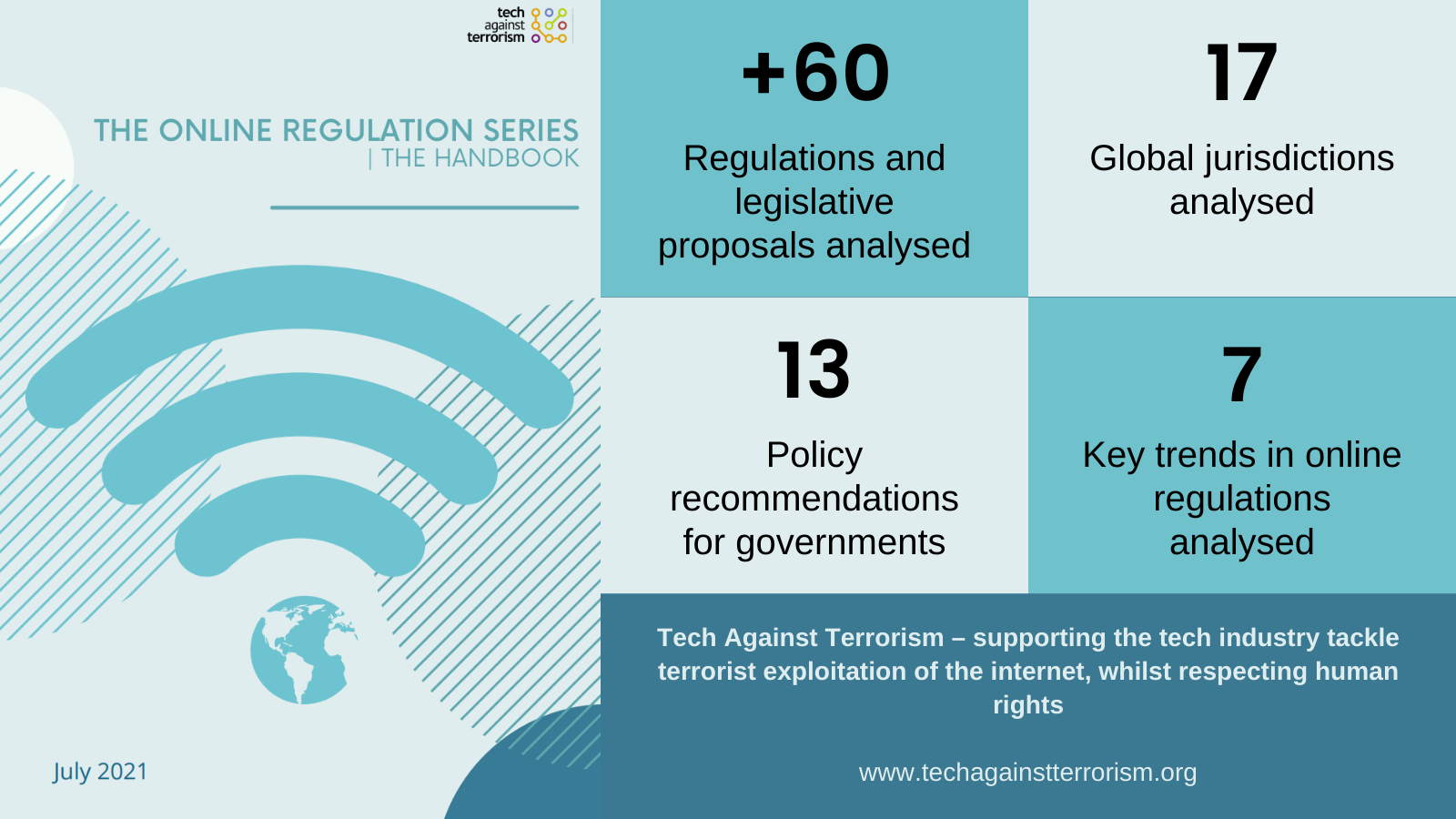Our weekly review of articles on terrorist and violent extremist use of the internet, counterterrorism, digital rights, and tech policy.
Webinar Alert!
– Tech Against Terrorism & GIFCT e-learning webinars are back! Don't miss out on our next webinar - Thursday, 25 October, 5 pm BST / 12 pm EDT/ 9 am PDT on “Online terrorist financing: assessing the risks and mitigation strategies”. You can register for the event here. Please stay tuned for upcoming agenda details.
Tech Against Terrorism Resource Spotlight
– Our Online Regulation Series Handbook, which was launched in July. Following up on our first Online Regulation Series in 2020, the Handbook provides insight and analysis of over 60 regulations and legislative proposals in 17 countries and includes our recommendations for policymakers. You can access the handbook here.
With this Handbook, we provide a state of play of online regulation and share practical insights for tech companies to improve their understanding of the complex and fast changing global regulatory landscape.
Top Stories
– A new congressional bill has been proposed in the United States, which seeks to repeal Section 230 immunities for algorithmically targeted content.
To read more about Section 230 and online regulation in the United States, check out our entry on the legislation in the US in our Online Regulation Series Handbook.
– This week, Facebook’s “Dangerous Individuals and Organizations” list was leaked, which revealed individuals and organisations that the company maintains in its policies for promoting violence. Content from these groups gets moderated on the platform.
For more information on this from Facebook's Dangerous Individuals and Organizations team, see here.
– This week, we’re listening to The Lawfare Podcast: Finstas, Falsehoods and the First Amendment.
Counterterrorism
– Recalibrating U.S. Counterterrorism: Lessons Learned From Spain: This piece, by Kim Cragin, Michael Bartlett, and Will Crass discusses how the United States’ recalibration of US counterterrorism strategy should consider Spain’s counterterrorism methods and successes. Cragin, Bartlett, and Crass argue that Spain’s “liaison magistrates represent a good first step”, calling for the US to go beyond “legal attachés and short-terms advisers, exploring new forms of collaboration and partnership with foreign ministries of justice”. They also suggest that the FBI should consider ways that it can expand the nature and extent of its own partnerships abroad, particularly in countries that represent historical transit points – such as France, Turkey, and the Netherlands – for terrorist operatives trying to reach the US. Cragin, Bartlett, and Crass highlight that these enhanced partnerships would speed the transfer of information and evidence for preventing cross-border plots and prosecuting their perpetrators. (Cargin, Bartlett, Crass, Lawfare, 10.10.2021)


